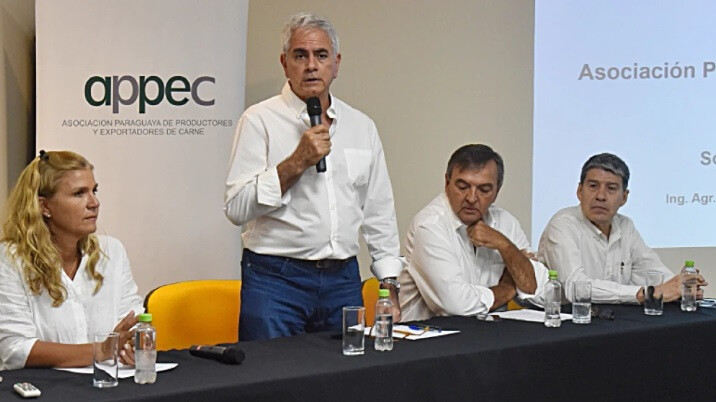
The Paraguayan livestock industry is strongly demanding an improvement in the profit distribution structure within the meat sector. According to a recent report by the Paraguayan Meat Producers and Exporters Association (Appec), while the price paid to beef producers increased by 6.8% over the past year, the total margin of the industry surged by a significant 24% during the same period. This imbalanced increase in profits is fueling discontent among producers and sparking discussions about fair profit sharing within the industry.
At a recent press conference, Appec President Ramiro Maluff presented a detailed analysis of the ‘Novillo Tipo 2.0’ model, a crucial indicator for understanding the profitability and transparency of the Paraguayan beef industry. The Novillo Tipo 2.0 model is based on castrated or uncastrated male cattle with a live weight of 480 kg and a carcass yield of 54% (carcass weight of 259 kg), reflecting the average type of cattle currently slaughtered in Paraguay.
President Maluff explained that this model is useful for measuring the overall profitability of the industry by aggregating all the value generated from a slaughtered animal, including meat, offal, and by-products. He emphasized, “The Novillo Tipo is an indicator that identifies the total value of the slaughtered animal, clearly showing the relationship between the price of cattle and industry profits. This includes not only meat but also the value of offal and all by-products generated in the industry. Nothing is wasted; everything is utilized.”
This method of measurement allows for a clear understanding of the correlation between cattle prices and industry profits, which plays a vital role in comprehending the industry's total margin. Appec aims to foster a healthy livestock ecosystem, and President Maluff asserted, “The industry must be profitable to have a future.” He stressed that not only should the industry generate profits, but producers also deserve fair compensation, strongly advocating for equitable profit distribution.
According to President Maluff's presentation, a comparative analysis of the Novillo Tipo model's value from 2022 to 2025 revealed that the total value of a Novillo Tipo at the beginning of this year, including meat, offal, and by-products, reached $1,258. However, there has been a slight downward trend in the first quarter of 2025. Despite this, the industry's total margin has steadily increased over the past three years. President Maluff pointed out, “While the prices received by producers have increased, the industry's margin has improved at a much greater rate.”
Specifically, the price paid to producers for cattle increased by 6.8%, from $847 to $905, while the industry's total margin surged by 24% in just one year, from $280 to $347 per head. Considering that the margin in 2023 was $228, this represents a substantial margin increase of 52% in just two years. This data clearly demonstrates that the industry sector is capturing significantly more profit compared to the efforts of the producers.
In response, President Maluff stated that while Appec's goal is the continuous development of the Paraguayan meat industry, solutions must be sought to provide fair total margin distribution and better conditions for both producers and the industry. He expressed concern that the current profit distribution structure is imbalanced and could hinder the healthy long-term growth of the livestock industry.
Meanwhile, President Maluff emphasized the importance of opening new markets, particularly highlighting active efforts to enter the Asian market. He said, “We are actively working to enter markets such as Indonesia, the Philippines, and South Korea. More than 50% of the world's population resides in Asia, and we must target that region.”
He also added that North Africa and the Middle East are significant opportunity markets. Currently, Paraguay only has access to the United States market, one of the top four most valuable markets globally, and remains excluded from the Chinese, Japanese, and South Korean markets due to political factors. This situation acts as a limiting factor on the growth potential of the Paraguayan livestock industry.
Appec and the Paraguayan livestock industry argue that fair profit distribution between producers and the industry is essential for the sustainable growth of the meat sector, urging the government and relevant institutions for active cooperation and policy support. They also plan to diversify exports by opening new markets and work to ensure that the benefits derived from this are reasonably distributed to producers.
[Copyright (c) Global Economic Times. All Rights Reserved.]






























